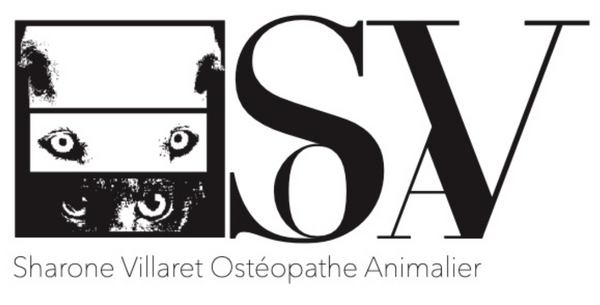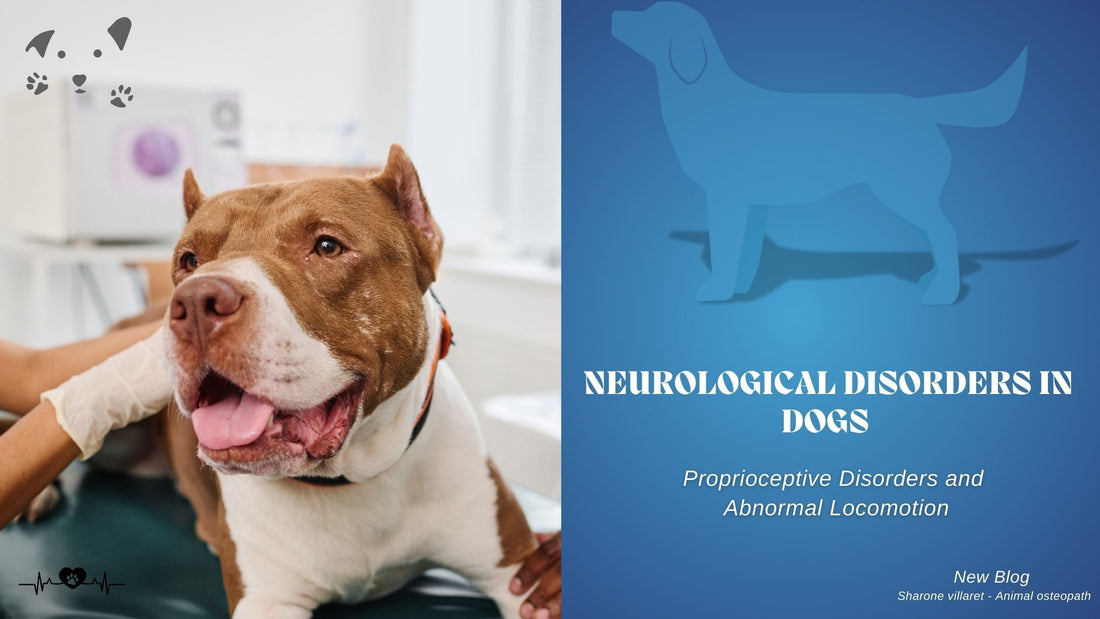After giving birth, some dogs may develop an abnormal gait , incoordination of movement , or persistent proprioceptive disturbance . If these symptoms persist for several weeks after giving birth, it is essential to identify the underlying cause and implement appropriate management.
In this article, we will see:
✅ Why a bitch may have proprioceptive problems after giving birth
✅ Possible causes, from biomechanical imbalance to nerve damage
✅ The importance of veterinary and osteopathic monitoring for recovery
1. Understanding postpartum proprioceptive disorders
Proprioception is a dog's ability to sense the position of its body and limbs in space. When impaired, a dog may adopt a hopping, shuffling, or disorganized gait , even without apparent pain.
The causes can be:
🔹 Neurological → Nerve compression, inflammation of the spinal cord.
🔹 Biomechanics → Pelvic misalignment, excessive muscle tension.
🔹 Metabolic → Vitamin deficiency or endocrine disorder (hypothyroidism).
💡 An accurate diagnosis is essential to implement the right treatment and avoid worsening.
2. Possible causes of persistent locomotor disorder after giving birth
📌 1. Compression or injury of the lumbosacral nerves
During parturition, the nerves of the lumbosacral plexus (L5-S3) can be compressed, causing impaired nerve transmission to the hindquarters.
📍 Why?
🔹 Prolonged pressure on the spine during childbirth.
🔹 Lumbosacral disc herniation aggravated by labor efforts.
🔹 Cauda equina syndrome , which affects the nerves controlling the hind limbs.
📍 Associated symptoms:
✔ Jumping or hesitant gait
✔ Mild but persistent muscle weakness
✔ No obvious pain, but coordination problems.
💡 A neurological examination and imaging (MRI, CT scan) may be necessary to confirm nerve compression.
📌 2. Chronic biomechanical imbalance (blocking of the pelvis and sacrum)
The pelvis and spine are subjected to significant stress during pregnancy and childbirth . Sacroiliac misalignment or lumbar subluxation can lead to locomotor impairment.
📍 Why?
🔹 Poor pelvic realignment after childbirth.
🔹 Excessive postural compensation , affecting locomotion.
🔹 Chronic muscle tension limiting hindquarters mobility.
📍 Associated symptoms:
✔ Stiffness or asymmetry of the pelvis
✔ Sensitivity to touch in the lumbar region
✔ Loss of fluidity in gait
💡 Osteopathic follow-up can help restore balanced posture and release tension.
📌 3. Postpartum neurological disease (encephalopathy, myelitis, inflammatory neuropathy)
In some cases, postpartum nerve inflammation can impair proprioception.
📍 Why?
🔹 Postpartum meningoencephalitis (inflammatory reaction after childbirth).
🔹 Inflammatory neuropathy , disrupting nerve connections.
📍 Associated symptoms:
✔ Progressive abnormal gait
✔ Loss of coordination that gradually spreads
✔ Unusual lethargy
💡 A thorough neurological assessment and cerebrospinal fluid puncture may be considered if nerve inflammation is suspected.
📌 4. Metabolic or hormonal imbalance (deficiencies, hypothyroidism, B12)
Vitamin deficiency or hormonal disorder can disrupt nerve and muscle function.
📍 Why?
🔹 Postpartum hypothyroidism can slow nerve conduction and cause muscle weakness.
🔹 A deficiency of vitamin B12 or magnesium affects nerve regeneration.
📍 Associated symptoms:
✔ Lethargy and lack of muscle tone
✔ Dull coat, abnormal weight gain
✔ Hesitant gait, but no obvious pain.
💡 A simple blood test can identify these disorders and allow for rapid correction.
3. How to help a dog with a persistent locomotor disorder?
If the abnormal gait persists, it is important to adopt a comprehensive approach , combining veterinary medicine, osteopathy and nutrition .
✅ Recommended steps:
1️⃣ Veterinary consultation and neurological and orthopedic examinations.
2️⃣ Medical imaging (X-ray, MRI, CT scan) if nerve compression is suspected.
3️⃣ Complete blood test (vitamins, hormones, electrolytes).
4️⃣ Osteopathic follow-up to restore mobility and rebalance posture.
5️⃣ Adapted nutritional supplementation (B12, omega-3, antioxidants) to promote nerve recovery.
💡 Regular monitoring allows for adapting care and helping the dog regain smooth and stable locomotion.
4. Conclusion
Persistent abnormal gait after giving birth may be caused by nerve compression, biomechanical imbalance, neurological inflammation, or metabolic deficiency . A comprehensive assessment is essential to identify the cause and implement appropriate management.
💡 Osteopathy is an excellent complement to help the dog regain its locomotor balance and improve its daily well-being. 🐶💙


